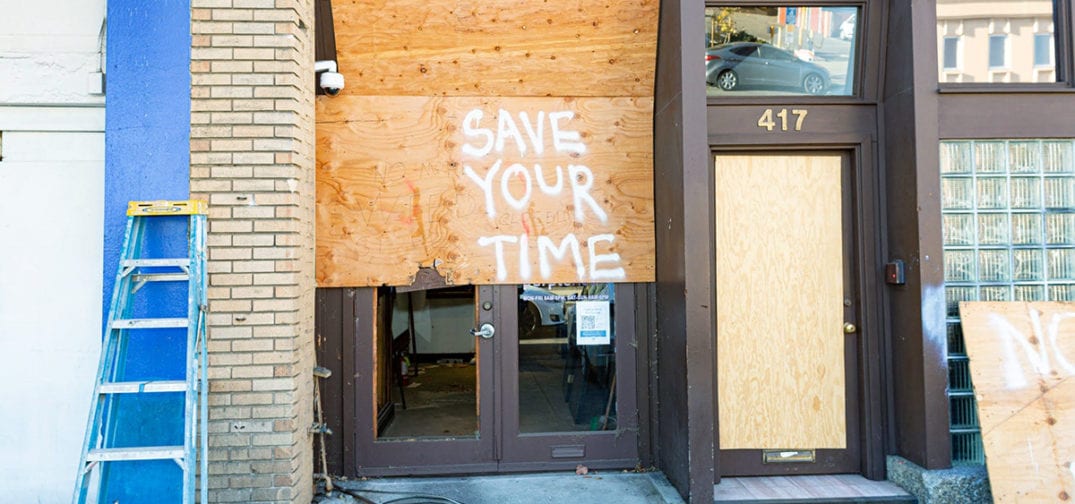“Save your time.”
That’s what Keith Stephenson, 52, spray-painted on the plywood that covered the shattered bulletproof glass after his business, Purple Heart, was ransacked amid a crime spree adjacent to last summer’s civil rights protests in Oakland, California.
“I was telling them, ‘There’re nothing here, just save your time,’” he said during a phone interview with Ganjapreneur. “Let me help you by phrasing this message for everyone to see. Just save your time. There’s nothing here. They beat you to it.”
Stephenson, the proprietor of Purple Heart, Oakland’s longest-running cannabis retailer, said he feels “an extreme amount of frustration” when he sees the 12 letters in white spray paint across his shattered door. He also used the words “vulnerability,” and “heartfelt loss” while comparing the business to “a child.”
While watching the security feed on the evening of Friday, May 29, Stephenson saw someone inside the foyer of his store – who had entered through the glass front door splintered during the unrest – but was kept from the main area by the bulletproof glass door. The individual left without incident and Stephenson called the police who responded, despite already dealing with “pandemonium and social disorder at the highest level.”
His next call – at midnight – was to a contractor to board up Purple Heart. Two-and-a-half hours later, still glued to his cameras, Stephenson saw a group of individuals use a “sledgehammer or mallet” to smash a hole through the 4×8 plywood installed just hours earlier but they too left without incident.
It was the following night when a group of between 40 and 50 individuals breached the shop. Stephenson said the “organized” group used pneumatic tools to pry the bulletproof glass door from its frame.
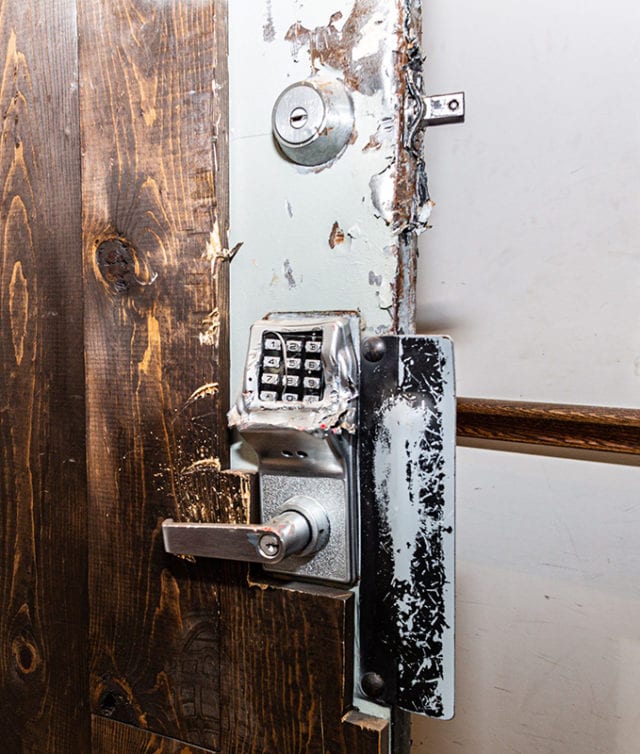
“And I’m just watching everything in real-time and they’re in there and taking everything,” he said. “I called the police, but I had no idea the extent to what was happening in the city. I was on hold with 911 for two hours.”
Stephenson was not able to meet with the responding officers that early morning due to the chaos in Oakland that had worn the force thin. His security company told him there were at least 600 alarms triggered in the city that Sunday night.
Stephenson describes watching his store get raided as “overwhelming” and “extremely violating.”
“As I’m watching this my energy’s drained,” he said when asked to recall watching his store get repeatedly looted. “There’s not much you can do.”
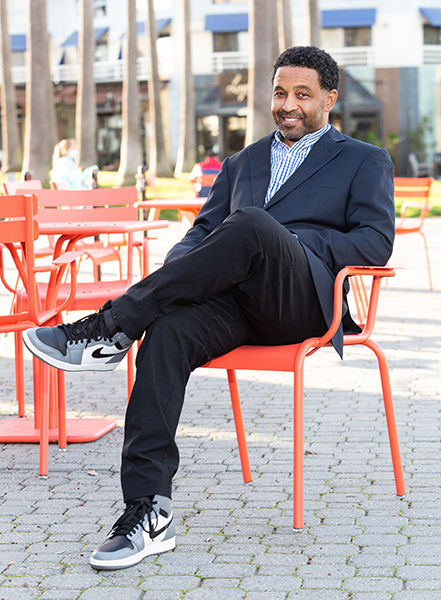
Throughout the interview, Stephenson made clear that the break-in was not linked to the social justice protests that occurred in the city sparked by the on-camera, alleged murder of George Floyd at the hands of a Minneapolis, Minnesota police officer.
“This was an organized crime ring that attacked a lot of cannabis businesses in the area and they did it knowing that the police had their hands full,” he explained, noting that individuals had actually discussed the plan on social media. “The city of Oakland, their police department was overwhelmed with about 20 [thousand] to-30,000 protestors.”
Stephenson said he no longer has the video because he doesn’t “want to have to relive it.”
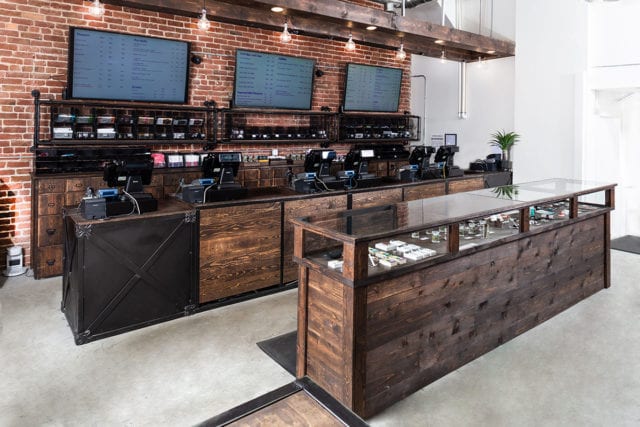
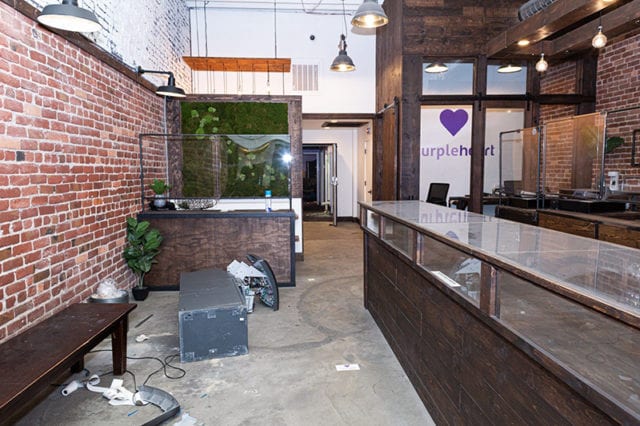
To make matters worse, his insurance company ultimately denied his claim for business interruption because he had temporarily closed due to the pandemic – just declared two months prior – therefore, they asserted, Stephenson hadn’t actually lost business. He was able to successfully claim losses on goods – in the “five-figures,” he said – and some computer components and damage. He described the insurance process, his first, as “an arduous battle,” sometimes “accusatory.” He noted that he had planned to open within days or weeks having installed sneeze guards and other coronavirus protection protocols required by the county.
“They asked me, ‘Did you leave the door open?’ If I would’ve left the door open why does my door look like this? My door is battered. The lock is smashed in. It’s pried off the frame. The question makes no sense. You can clearly see it’s breached. ‘Did you set the alarm’? Yeah, I set the alarm!” – Stephenson to Ganjapreneur
Ultimately, he filed a claim with the state insurance commissioner with the assistance of Assemblymember Rob Bonta (D).
Stephenson first moved to the Bay Area as an aviation maintenance technician for one of the major airlines. He was first introduced to cannabis after being diagnosed with a juvenile form of arthritis which led to two hip replacements and a shoulder replacement. In 1996, he got his first gig in the cannabis business with Oakland Cannabis Buyer’s Co-Op, one of the city’s first dispensaries. He became an activist, worked on legalization campaigns. He would later spearhead the idea of social equity licenses in Oakland.
“Purple Heart was always a community-based retail store.”
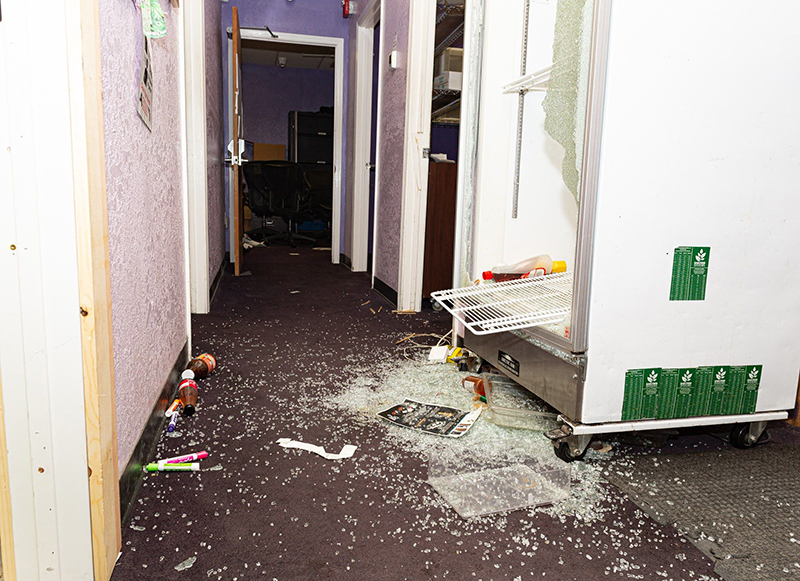
He’d open Purple Heart in 2006, which he said was “difficult at the time because the city was not embracing medical cannabis because they faced the threat of aiding and abetting cannabusiness” by the feds. After two dispensaries lost their licenses, Stephenson successfully applied, becoming the first Black-owned cannabusiness in the U.S.
Throughout the years, through Purple Heart, he’s donated to the Urban Services YMCA, Oakland School of the Arts, Oakland Police Officers Association, and Covenant House of California. He’s a member of California’s Cannabis Advisory Committee under the Bureau of Cannabis Control.
The destroyed incarnation of the shop was a 2017 remodel. Stephenson describes the previous design as “very avant-garde, very forward” with art-adorned walls showcasing local artists. The remodel – which cost a minimum of $300,000 – was a “green-build,” he said, using repurposed wood and more steel. The total included updated IT technology, including closed-circuit surveillance as required by the state for compliance.
He credits that upgrade with providing the information requested by the insurance company as his point-of-sale system had retained his inventory list. METRC – the seed-to-sale system used in California – didn’t use the format required by the insurers.
“The perpetrators were a street gang, and I don’t want any problems with them.”
Stephenson said “a couple” of the perpetrators were caught when they were found with Purple Heart’s stolen goods during a separate run-in with police. Those products were returned to him.
Other cannabis businesses – cultivation, production, retailers – throughout Oakland (and the rest of the state) were looted over the three days. There were “hundreds and hundreds” of perpetrators, Stephenson said.
While he hopes to re-open in the “near future,” Stephenson said he has been working for months “cleaning up the mess.” As one of just two cannabis retailers that have operated in the city since 2006, Stephenson wants Purple Heart to remain a pillar of the community.
He estimates lost revenue – the claim denied by insurance – at “over $5 million on the lower end.”
Still, he doesn’t plan to leave Oakland.
Get daily cannabis business news updates. Subscribe
End
